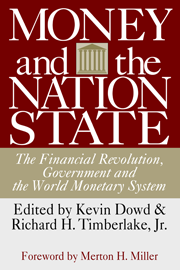President Biden’s budget proposal for 2024 makes it clear that the U.S. needs a budget straitjacket sooner rather than later.
A budget deficit can be reined in by either reducing expenditures or increasing taxes or both. In a seminal work, Austerity: When It Works and When It Doesn’t, the late Alberto Alesina and co-authors show that countries that mainly rely on spending cuts have balanced their budgets and reduced debt as a share of national income. On the other hand, countries that mainly rely on tax increases often fail to balance their budgets or reduce debt burdens. President Biden’s proposed plethora of tax increases would have the U.S. not attempting the first and not succeeding in the latter.
Switzerland has been arguably the most successful country in reining in budget deficits and its debt burden. Following a national referendum in which 85 percent of the electorate favored the so-called Swiss debt brake, it was incorporated into the Swiss constitution in 2001. The Swiss debt brake requires that expenditures be brought into balance with revenues. A cap is imposed on spending based on expected revenue, and revenue is projected based on long-term trends in the real growth of national income. Expenditures may exceed the cap in response to extraordinary events such as war, but if that’s the case, eventually, revenues from budget surpluses must be generated and set aside to offset this excess expenditure.
We propose a debt brake for the U.S. that would initially be more stringent than the Swiss debt brake, because of the high and unsustainable levels of debt in the U.S., including a possible big addition to that burden if President Biden’s proposals are enacted. We propose that a spending limit (read: cap) be calculated each year, and that the cap be reduced by 1 percent. This procedure would remain in place until debt is reduced to less than 100 percent of national income (it is around 120 percent now). When less than 100 percent of debt to GDP has been reached, the U.S. debt brake would switch to a standalone cap, like that of the Swiss.
Given the political composition of Washington, D.C., and the past bumbling of Congress over spending, taxing, and deficits, it’s doubtful that our debt-brake proposal would see the light of day.
Article V of the U.S. Constitution, however, opens a door. It provides that citizens, through their state legislators (as well as Congress), can propose amendments to the U.S. Constitution. That provision has been latched onto by a few outliers in Congress. Representative Jodey Arrington (R., Texas) and other co-sponsors have introduced H.C.R. 101. It calls for an Article V Convention of the States to propose amendments. That legislation mandates that the nation’s archivist store and count the many proposed amendments, which must be similar to each other, that have been submitted over the years, and once the requisite number of applications has been received, to notify Congress that it must call the convention. Recent research of the Congressional Record has discovered that the requisite 34 state applications, including plenary applications, proposing a balanced-budget amendment was achieved back in 1979, yet Congress failed to act. Recent polls also show that 81 percent of U.S. citizens support enactment of more effective fiscal rules through an Article V convention. Clearly, it’s time for a convention.
Passage of a debt brake as a constitutional amendment, which requires approval by two-thirds of the states, would replace discretionary fiscal policies with constitutional fiscal rules, together with an enforcement mechanism.
Critics argue that an amendment convention could “run away.” But this assertion is simply an attempt to sustain the unsustainable status quo. Our nation’s Founders knew that they didn’t get everything right for their generation or for future ones. They anticipated that Congress could fail to act in connection with critical national issues. That’s why they incorporated in Article V the right of the states to also propose amendments.
Critics also claim that stringent fiscal rules, such as a debt brake, would cause instability and a fiscal crisis. Wrong again. Stringent fiscal rules have allowed Switzerland, and several other European countries, to restore fiscal stability and sustainable debt.
It’s time for Americans to get the bit between their teeth and, via an Article V convention, rein in Washington’s addiction to fiscal deficits.










